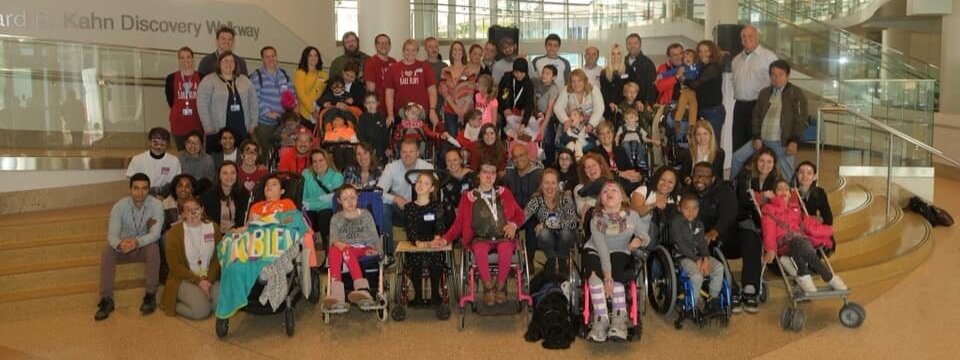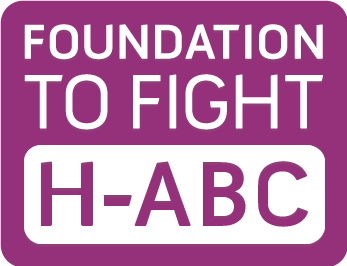
BLOG
Welcome Dr. Gerald Raymond to our Scientific Advisory Board
Very pleased to announce Dr Gerald Raymond will join our scientific advisory board as we continue to navigate gene therapy. Welcome Dr Raymond!
Dr. Gerald Raymond is a clinical geneticist and neurologist at Johns Hopkins where he is also a professor of genetic medicine and neurology. He obtained his MD at the University of Connecticut and was trained in Pediatrics at Johns Hopkins Hospital and Neurology at the Mass. General Hospital.
Welcome Dr. Florian Eichler to our Advisory Board
The Foundation is very pleased to announce the addition of Florian S. Eichler, MD., to our advisory board. Dr. Eichler is Director of the Leukodystrophy clinic at the Massachusetts General Hospital; Associate Professor of Neurology at Harvard Medical School; Executive Committee member of the Global Leukodystrophy Initiative.
SHOE DRIVE
Now through June 15, we are collecting gently worn shoes to send to impoverished countries throughout the world. Collect your gently worn shoes and drop off at 15901 Sycamore Lane Rockville MD any time. Contact free! Leave on porch!
Queen Letizia of Spain meets with Carolina
On February 11, Laura Rivera Casares and her family had the chance to meet with Queen Letizia of Spain at the Zarzuela Palace to talk about their daughter Carolina’s experience with H-ABC.
“It was a very special moment for our daughter Carolina, for over an hour we shared our experience with her, it was a good opportunity to give visibility to children affected by H-ABC disease. The Queen has been particularly sensitive and is committed to supporting any initiative that we organize.” - Laura
You can read all about the visit (in Spanish) on the Royal Palace website.
Queen Letizia of Spain meets with Carolina and her mother Laura to talk about H-ABC.
Fitkin Family Support for our H-ABC Family
Please watch the following video on how the Fitkin family’s contributions will assist us in the fight against H-ABC.
Global Genes Grant for H-ABC
The Foundation to Fight H-ABC is a proud recipient of the Continuity of Care RARE Patient Impact Grant, providing urgent financial aid to rare disease families in need. The grant was provided by Global Genes to help our H-ABC community during the covid-19 crisis.
As part of the Global Genes RARE Foundation Alliance, Fight H-ABC is committed to collaborating with other rare disease organizations and exchanging best practices to drive better outcomes for the rare disease community.
Global Genes is an international nonprofit organization that connects, empowers and inspires the rare disease community, with the ultimate goal of improving the lives of the more than 400 million rare disease patients around the world and their families. If you have a rare disease, contact Global Genes at +1-949-248-RARE.
PRESS RELEASE!
Foundation to Fight H-ABC, University of Massachusetts Medical School and Yale University Initiate Gene Therapy Study Targeting Cure for Rare Disease~
Martin's Story
A lot of people dream about a happy family, with children roaming around the house, laughing and turning everything upside down. It was our dream, as well, to give our daughter the chance of sharing life with a sibling, while enjoying more of her childhood with the closest of friends.
When Martin showed no interest or skill in moving beyond his closest proximity, we initially thought he was just the laid-back type. Little by little our questions and fears have started to pile up on our insides and we decided to seek medical advice. From that moment on, things happened quickly – or so it seems now when looking back. In a matter of 6 months, we went from the basic pediatric consult to the MRI and, ultimately, the all-encompassing genetic testing (the whole exome sequencing) that brought us to the most concrete and terrifying explanations of all.
Learning your child has a genetic syndrome that might hinder him from doing whatever he wishes in life – we all dread this. Learning this genetic syndrome is degenerative and that regress is a possibility no matter how much therapy and hard work he does – this was heartbreaking. Learning this is one of the ultra-rarest syndromes around the world, with less than 200 individuals currently diagnosed – this shed an ounce of hope in making us think we cannot judge a prognostic based on a number that is small. This is the silver lining we found. We started focusing on the unknowns and on the freedom of spirit the unknown has to offer. The past two years have been awfully long and terribly short. With several hours of daily therapies, Martin managed to progress both with motor skills and cognition – bringing us on the verge of exploding whenever he managed and continued to do something new. It was on several occasions we thought this is adrenaline-like. Every progress, albeit so small and coming so slowly, feeds us with the energy and determination to work and aim for more.
Nature, however, has its course, no matter how much we would like to be able to control it. On Martin’s good days I am confident we will pull it through. On his modest days, we realize he needs a treatment, or a cure. He needs to have this addressed in a scientific way – more than us, his parents, could offer. In this respect, we are so thankful we found other families sharing a similar journey. We are a group inspired by the same vision and fighting for the same goal – push the research through and be able, in a couple of years from now, to provide our children a real chance to a good life.
We will be the happy family we are dreaming of. I am confident.
-Martin's Mother
PENN PLAZA NYC!
Very excited to have been featured all day on July 23, thanks to our friends at Adquick
How Covid-19 Impacted Us
For a child with a serious neurological condition like H-abc, inactivity is the worst situation even under normal circumstances. When COVID-19 evolved, here is how it impacted our family and other families like ours living with H-abc.
Initial Impact
We had to make a decision before anyone else, to keep our child home from school and other activities. We know other parents were struggling with this decision, but for a child with a condition like H-abc, exposure to viruses is very dangerous. Due to the lack of general inactivity and history with complications tied to respiratory conditions, the kids immune system are already compromised. We were very afraid to go out to the store, for fear of bringing the virus home. We ordered all of our food on-line for delivery. We used bleach to clean anything we came in contact with. Our meds were sent in the mail! We cut off physical contact with everyone, as did most people.
Therapy
We became Occupational and Physical Therapy experts! Luckily, we had equipment at home to use. We met and continue to meet weekly with therapists on Zoom and learned how to provide the much needed therapies to keep Elouise strong and active. Every day we apply these therapies and she is probably now in the best shape ever! We are lucky to have a heated hydro pool donated by Make A Wish! It was installed just before the quarantine hit. We used it almost daily, even in the colder months of March and April. It was a life safer, not only physically, but a great outlet and diversion from the monotony.
Family and Friendships
For kids with neurological conditions like H-abc, their means of communication with others are hugs and smiles. This all went away when we were quarantined. Elouise loves to hug, its her way of expressing her feelings as her verbal abilities have diminished over time. It was very difficult to be cut off from her school friends and church friends and family. Even under normal circumstances, developing relationships for kids with neurological conditions are difficult given their mobility and speech challenges. During COVID, the complete void of any interactions with her network of people was and is difficult. However, Elouise spends much of her time watching her shows, and following her Teen idols and calling her family and friends!
School
We as parents, very quickly became experts on how to access the online classrooms, how to do math, write essays and generally revisit 8th Grade Middle School! Kids like Elouise need one on one assistance at school. She is unable to do this alone. So, with much challenge, we figured out how to navigate it all, set up a schedule, met with her teachers and peer remotely, worked on homework, and managed to graduate from 8th Grade!!
Summer
Camps are cancelled, pools are opening but with restrictions. Our camp for kids with disabilities couldn’t accommodate us due to the close hands on assistance that is needed and fact all activities are restricted to the outside, in the heat, wearing a mask. This is very difficult for a child like Elouise so we couldn’t attend and in fact, the entire program was cancelled.
The New Normal
As the disease progresses for children with H-abc, we are always learning to adjust to a new normal. Ten years ago our normal was a child who could walk, run, write, play, and speak just like any other kid. Over time we have adjusted to the progression of this disease, and today Elouise is in a wheelchair and using a spelling board to communicate. But she is healthy and happy. As others across the globe are adjusting to the new normal post Covid, we will need to figure out how to live with social distancing, and its very unclear how that looks for us. Some parents are not letting their kids go back to school until a vaccine is available, that could be over a year. Consider the therapies which involve close interaction with others indoors, all of which increases the risk of transmission of viruses. With all the challenges kids with neurological conditions face, this creates more complexity.
Our Outlook
Its hard to say what the next year will look like, and given concerns with the virus possibly surfacing again at elevated levels, its even more unclear. However, as we did before the virus and as we continue to do moving forward, we will live each day, day by day, to its fullest with hope and faith!











